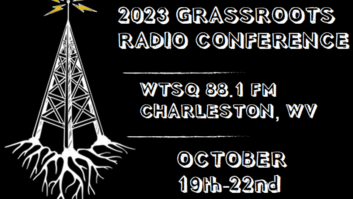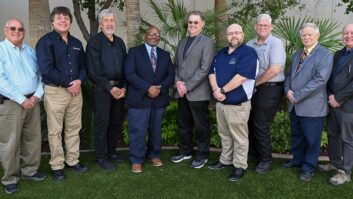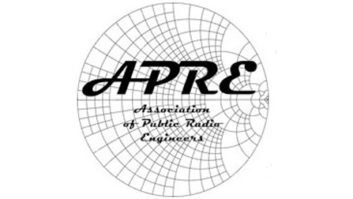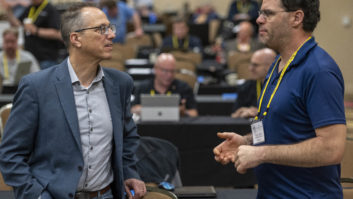Radio World has introduced a series of commentaries titled “Firing Up Frequencies,” intended for readers who may be interested in applying for a low-power FM station license during the FCC’s upcoming window, which was recently pushed back by five weeks. The following story is the fifth installment in the series.
The author is Sharon Scott, president and co-founder of ART FM, WXOX in Louisville, Ky. She is the author of the new book “Low-Power FM for Dummies.”
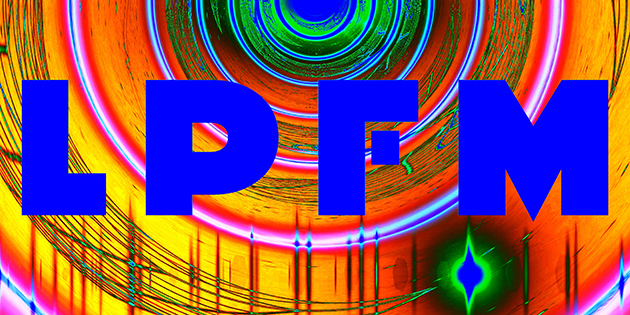
Community radio got a surge of energy at this year’s Grassroots Radio Conference (GRC) in Charleston, W.Va. Host station WTSQ(LP) 88.1 FM “The Status Quo” welcomed over 100 attendees from college and community stations nationwide to their city Oct. 19–22.
Scholarship opportunities provided by keynote speaker Amy Goodman of “Democracy Now” opened the conference to a range of participants. Full-power stations in attendance this year included the likes of WWOZ New Orleans, KBOO Portland and WBAI New York. LPFM stations were well-represented by stations such as WAYO(LP) Rochester, WSLR(LP) Sarasota and KLEK(LP) Jonesboro.
The energy around this event was heightened by the fact that it was the first in-person conference since Rochester in 2019. The GRC was hosted virtually in 2020 and the attendees have been meeting monthly online ever since. However, as Engineer Michael Brown put it, “doing community via Zoom only goes so far.” After three years apart, it felt better than ever to shake hands, share adventures and celebrate all the amazing things community radio has accomplished in these very challenging times.
WTSQ did an incredible job hosting this year’s conference and Charleston was the ideal place to make it happen! Perfectly walkable and full of local character, it seemed like the city had been built specifically for this event. From the Capitol Theater, to the West Virginia Music Hall of Fame, to the Underground Cinema, attendees enjoyed getting to know some of West Virginia’s secret attractions. And of course, the October drive to the mountain destination couldn’t have been more beautiful, aflame with red and yellow! Wild and Wonderful to be sure!
The timing of this year’s GRC ended up being perfect thanks to the FCC’s delay of the low-power application window — now Dec. 6–13 (see Radio World article “LPFM Advocates Rejoice, Say Application Extension Gives Power to the People“). With engineers from REC Networks, the Prometheus Radio Project and Brown Broadcast Services in the house, new applicants got plenty of first-person advice.
In addition to sessions specifically geared toward LPFM, there were useful seminars for stations of all sizes that included station governance, fundraising and marketing. Distinguished speakers included Pete Tridish of Radio Mutiny, Jim Ellinger of Austin Airwaves, Joseph Orozco of KIDE Hoopa Tribal Radio, Ursula Ruedenberg of the Pacifica Affiliates Network and Alex Sanjenis of the FCC.
[Related: “Taking It LPFM: Finding or Founding Your Nonprofit“]
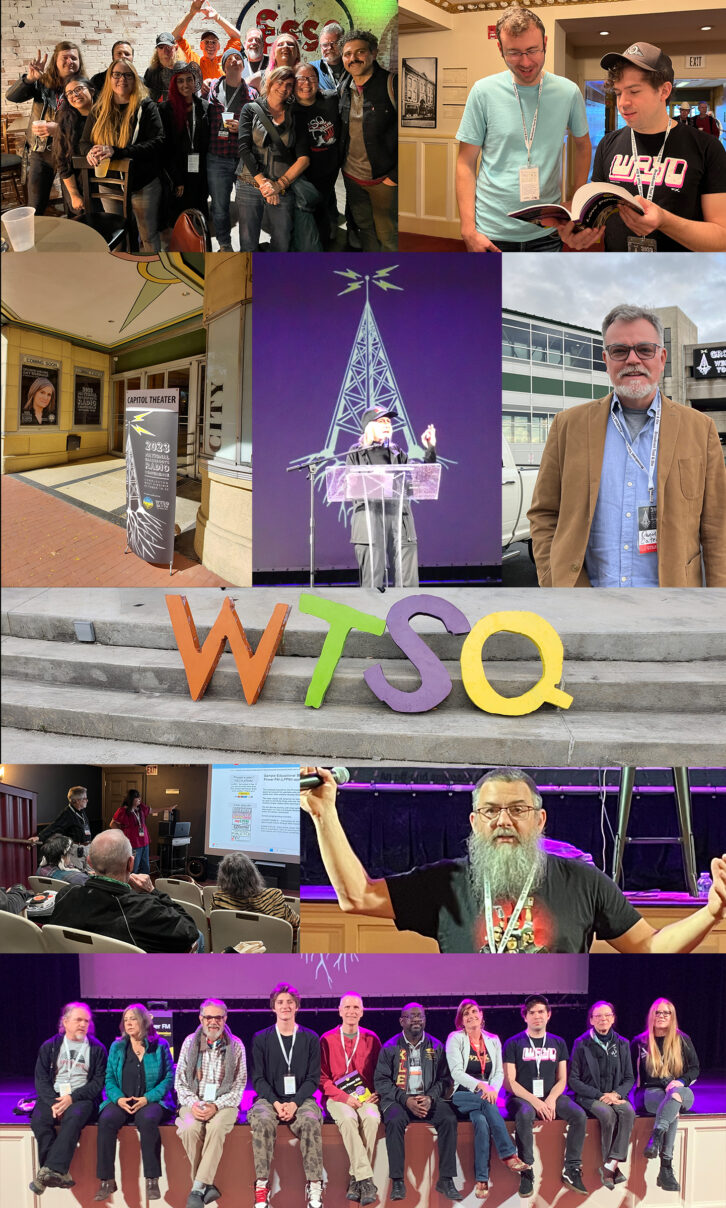
Amy Goodman’s keynote speech brought a tear to every eye and ignited a passion in every heart. As a product of the Pacifica Network, Goodman made it clear that she understands the important work that grassroots stations do and the power of people being able to speak for themselves. “Locals are the experts on what is happening in their area … When people speak up, they can affect the government.”
She pinpointed a few salient moments in community radio history (such as the KKK bombing of the KPFT transmitter) and reminded her audience of the power of FM frequencies. She asked a mesmerized audience, “Will you be the sword? Or will you be the shield?”
Conference attendees definitely had a lot to think about over the weekend. Ongoing themes included engaging youth, celebrating diversity and building the national grassroots network. It was also fun to get a peek backstage at the new WTSQ studios in the People’s Building in the midst of downtown Charleston.
A vendor showcase included demonstrations of the latest equipment and software developments from the likes of SCMS, Broadcast Radio and Progressive Concepts. The release party for my book —“LPFM for Dummies ” — included a panel of contributors followed by an impromptu yearbook-type opportunity for conference attendees — many of whom are included in the publication — to sign one another’s books.
While minds were blown and fires were sparked during each of the daily sessions, some of the most significant moments happened at social events such as a showcase of local bands that began in the open-air plaza downtown and wound up in the mosh pit at Sam’s Uptown Café. Sharing escapades while running around the downtown streets of a new city with new radio friends is a bonding experience that no online conference will ever manage to duplicate.
The community radio quilt that weaves America’s grassroots stations together has been recovered and is now safely in the hands of WTSQ(LP) Charleston. Where it will go from here has yet to be seen, but the fact that this conference, and its decidedly freeform traditions, has been passed on from one community station to the next for over 27 years is its own testament to the ongoing power and perseverance of the national Grassroots radio movement.
Radio is not always about money, ratings and sponsorships. Again and again this conference proves it. GRC 2023 brought together media advocates and practitioners who recognize the importance of amplifying the sounds of the community and increasing understanding among listeners. Future LPFM applicants became hopeful about their new opportunities and volunteer-powered stations of all sizes were seized by an energy to grow the movement nationwide.
The WTSQ team made conference attendees feel so at home in their lovely city that, by the end, no one wanted to leave. Board President Damon Cater had a vision for this conference and spent many months bringing the GRC back to life. The WTSQ staff, managed by Station Founder Chris Long, and supported by a team of local volunteers did an amazing job making it happen. As a result, new bonds were formed, new ideas were hatched and attendees are returning to their stations more energized than ever before.
The community radio world needed a reboot — well, it got an electric shock!





